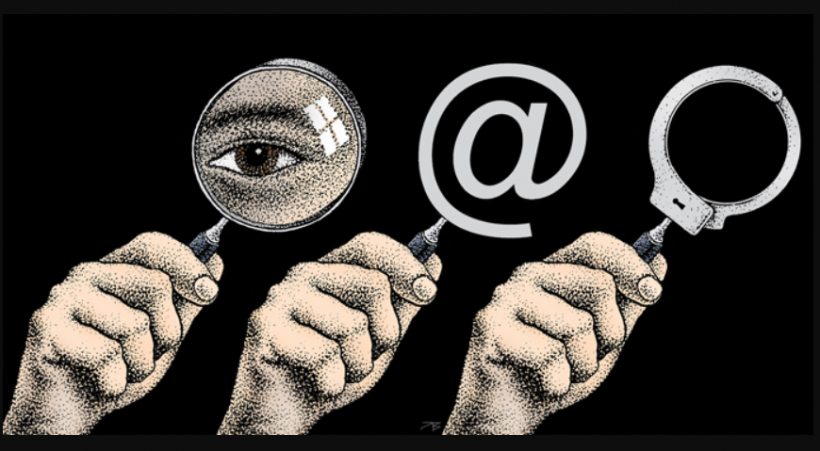
On February 25 the government announced new rules titled Information Technology (Intermediary guidelines and digital media ethics codes) Rules 2021 for regulating digital platforms. The rules have been widely criticized and have been challenged in the Delhi High court by Foundation for Independent Journalism, which runs The Wire and by Quint Digital Media Ltd., which runs The Quint.
The rules seek to regulate all kinds of online platforms- Facebook, Whatsapp or Google defined as intermediaries, OTT platforms such as Netflix, Amazon Prime and digital news media. The rules create provisions for setting up a “self-regulating” mechanism to restrict and censor the content on all these platforms. This “self-regulating” mechanism is overseen by the central government. The rules, therefore, violate the freedom of speech on the internet and also pave a way for the government control over the content on these platforms.
Criticizing the new rules, Pramod Ranjan, author of Media Mein Hissendari (Representation of Bahujans in media writes “The fact is that these rules are meant less for controlling the intermediary platforms and more for terrorizing the people into submission and silencing those who raise fundamental socio-cultural and political issues.” He further adds that these rules will substantially erode the freedom expression of the people of India.
Apart from having a chilling effect on free speech, the rules raise serious concerns about privacy of the users. In the attempt to regulate, the rules require social media intermediaries providing services in the nature of messaging to enable the identification of the first originator of any information for investigation or prosecution, if a competent court passes an order to that effect. This provision could lead to a serious breach of privacy rights, as it may involve breaking the end to end encryption in the messaging services. Internet Freedom Foundation (IFF), an organisation that works for digital liberties, states in its analyses of the rules that the provision for tracking the first originator of the message used along with the powers under Information Technology Decryption Rules will enable the government to break any type of end-to-end encryption to gain knowledge of who sent what message and also get to know its contents. More importantly, this needs to be viewed in the larger context of how there is no concrete law in place for protection of privacy in India.
The first part of the rules elaborates on the definition and the second lays down the compliances for the intermediaries. Part three deals with the regulation of digital news media and the OTT platforms and requires them to adhere to Code of Ethics under the rules. IFF states that, “the criteria provided in the Code of Ethics are vague, overbroad and will have a chilling effect on the free speech of publishers, as well as the right to access information for consumers of content.”
As far as the regulation of digital media is concerned, the Information Technology Act, 2000 does not cover the news media. The attempt to regulate the digital new media through rules- a subordinate legislation made by the executive- when the parent act does not extend to digital media, is illegal. This constitutes the major part of the challenge against the rules by The Wire.
Another major criticism against the rules is that it gives a wide range of powers in the hands of the executive. The regulation of digital news media and OTT platforms is to be ensured by setting up a three tier grievance redressal mechanism. At the first level, the publishers and OTT platforms have to appoint a grievance officer. At the second level is the self regulating body to set up by publishers or their associations. This self regulating body, however, has to be approved by the government. At level three is the Inter-Departmental Committee. This committee consists of representatives from the Ministry of Information and Broadcasting, Ministry of Women and Child Development, Ministry of Law and Justice, Ministry of Home Affairs, Ministry of Electronics and Information Technology, Ministry of External Affairs, Ministry of Defence, and such other Ministries and Organisations.
This committee will hear the complaints regarding the decisions taken at levels I and II. Rule 14 (5) also enables the committee to delete or modify the content. This leads to direct control and censoring powers in the hands of the government and undermines the freedom of press.
In its letter to the Union Information and Broadcasting minister, DIGIPUB News India Foundation, a conglomerate of digital media organisations in India, states that “These Rules in some places appear to go against the fundamental principle of news and its role in a democracy.” While requesting that the rules either be repealed or put on hold until consultations with concerned stakeholders have taken place, DIGIPUB also adds that “For the executive to have the absolute power to regulate the content of news portals or publications would be to strike not only at the constitutional scheme but at democracy itself”. The attempt to gag the media by setting up this bureaucratic mechanism cannot be seen in isolation from the recent attacks on journalists and independent media organisations. If the validity of the rules is upheld by the court, these rules will fundamentally affect the freedom of media and will have a far reaching impact on the nature of Indian democracy.




